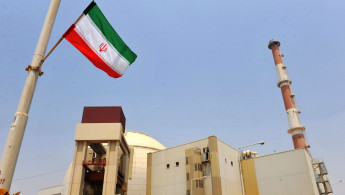Iran is keeping to 'nuclear-related commitments' under deal: UN nuclear watchdog
"Iran is subject to the world's most robust nuclear verification regime" and that the 2015 Joint Comprehensive Plan of Action (JCPOA) was "a significant verification gain", Yukiya Amano, director-general of the International Atomic Energy Agency (IAEA) reiterated in a statement.
"The IAEA is closely following developments," Amano said.
Despite US criticism that the accord does not go far enough in monitoring Iran's nuclear activities, the IAEA points to the fact that its inspectors have spent 3,000 man days per year on the ground in Iran.
The agency says it has attached some 2,000 tamper-proof seals to nuclear material and equipment, and that it has access to "hundreds of thousands of images captured daily by our sophisticated surveillance cameras", the number of which has almost doubled since 2013.
Amano previously said the JCPOA's loss would be "a great loss for nuclear verification and for multilateralism".
The other parties are now looking into ways to salvage the agreement, with the foreign ministers of France, the UK and Germany due to meet Iranian representatives next Monday.
Despite repeated statements by the IAEA confirming Iran's commitment, Trump sparked an international outcry by ditching the accord on Tuesday, a move that risks overturning years of diplomacy and adding to instability in the Middle East.
Trump poured scorn on the "disastrous" 2015 accord in an address to the nation from the White House on Tuesday.
He described the agreement as an "embarrassment" to the US that does nothing to contain Iran's nuclear ambitions.
Slapping aside more than a decade and a half of diplomacy by the UK, China, France, Germany, Iran, Russia and past US administrations, Trump called for a "new and lasting deal".
He said that would have to include not just deeper restrictions on Iran's nuclear programme, but on its ballistic missiles and support for militant groups across the Middle East.
"We cannot prevent an Iranian nuclear bomb under the decaying and rotten structure of the current agreement," he claimed.
"We will not allow American cities to be threatened with destruction and we will not allow a regime that chants 'Death to America' to gain access to the most deadly weapons on Earth."
Iran's Rouhani - whose standing at home now risks being undermined by the deal's collapse - was furious, accusing Trump of "psychological warfare".
Rouhani said Iran could resume uranium enrichment "without limit" in response to Trump's announcement, but that it would discuss its response with other parties to the deal before announcing a decision.





 Follow the Middle East's top stories in English at The New Arab on Google News
Follow the Middle East's top stories in English at The New Arab on Google News
![Both Hamas and the Palestinian Authority welcomed the ICC arrest warrants [Getty]](/sites/default/files/styles/image_330x185/public/2024-11/GettyImages-2178351173.jpg?h=199d8c1f&itok=TV858iVg)

